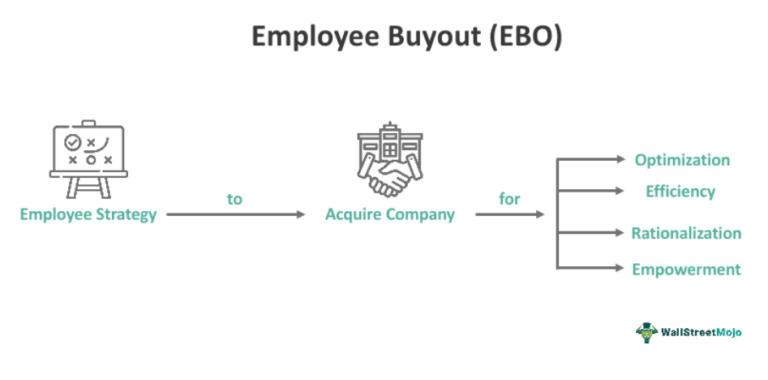
Audience
- Sentiment: Neutral
- Political Group: Republican
- Age Group: Young Adults
- Gender: All Genders
Overview
- Lori Chavez-DeRemer testified before the Senate HELP Committee regarding her nomination as Labor Secretary.
- She shifted her support away from certain provisions of the PRO Act, including the elimination of Right-to-Work laws.
- Chavez-DeRemer emphasized the need for educational pathways and collaboration to address the skills gap in the workforce.
Lori Chavez-DeRemer: Navigating the Labor Landscape
Imagine standing in front of a room full of important individuals who have the power to decide your future. This is exactly what Lori Chavez-DeRemer experienced when she testified before the Senate HELP Committee. Nominated by President Trump for the position of Labor Secretary, Chavez-DeRemer had to tread carefully, balancing her previous beliefs with the expectations of her new role. The testimony centered around labor policies, specifically the complexities of the Protecting the Right to Organize (PRO) Act and Right-to-Work laws, both of which have significant implications for workers across the nation.
Who is Lori Chavez-DeRemer?
Before we dive into her testimony, let’s get to know Lori Chavez-DeRemer a bit better. She served as a Congress member representing Oregon’s 5th district. Throughout her time in office, she was known for her support of various labor policies and initiatives aimed at protecting the rights of workers. However, she also faced the intricate reality of political pressures and differing opinions within her party. This journey of hers illustrates not only her growth as a politician but also the ever-evolving landscape of labor laws in the United States.
The PRO Act and Its Implications
To understand why her recent testimony was so pivotal, we need to look at the PRO Act. This legislation was designed to provide stronger protections for workers’ rights to organize and form unions. It aimed to eliminate laws that many believe weaken these rights, known as Right-to-Work laws. Right-to-Work laws allow employees to work without being required to join a union or pay union dues, which supporters argue provides freedom for workers. Opponents, on the other hand, contend that these laws weaken labor unions, leading to lower wages and diminished workers’ rights.
Chavez-DeRemer initially supported the PRO Act as a Congress member, showing her commitment to enhancing workers’ rights. However, when she stood before the Senate HELP Committee, she threw a curveball, stating that she no longer supports certain provisions of the Act, particularly those that aim to eliminate Right-to-Work laws. This shift raised eyebrows, especially among her original supporters.
A Shift in Perspective
Why did Chavez-DeRemer change her stance? The answer lies in her desire to align herself with Republican senators who are often skeptical of expansive labor laws. It’s a classic case of political maneuvering. As a Labor Secretary under a Republican administration, Chavez-DeRemer was keen on demonstrating that she respected the diverse needs of workers across the country, including those in Right-to-Work states.
By affirming her respect for these states, she made it clear that her goal wasn’t to strip away workers’ freedom but rather to foster collaboration between business and labor. This approach shows her understanding of the nuances in labor issues—a quality essential for anyone aiming to occupy a high-ranking position in the government.
The Importance of Education and Collaboration
During her testimony, Chavez-DeRemer highlighted the need for educational pathways and collaboration between businesses and labor organizations. This aspect of her vision is particularly noteworthy, as it addresses a growing concern in our workforce today: the skills gap. With rapid advancements in technology and shifts in industries, many workers find it challenging to keep up. Chavez-DeRemer believes that by pushing for educational programs and partnerships with businesses, workers can be better prepared for the future job market.
Imagine if high schools started offering programs that directly align with what employers are looking for—like coding classes, machine operation, or customer service training. By working together, labor unions and businesses can create a workforce that is not only skilled but also adaptable in an ever-changing economy.
Understanding the Impact of Policies
The realm of labor policies can often seem distant from our everyday lives. Yet, the decisions made at high levels of government can directly impact wages, job security, and workers’ rights—elements crucial to people’s lives. For many high school students looking forward to their first job or thinking about their future careers, this understanding is even more critical.
When workers are able to organize and advocate for themselves, they can help create safer workplaces and fair wages. On the other hand, Right-to-Work laws can lead to scenarios where workers may not have the same level of advocacy, and this is a discussion that enters a personal realm. Wouldn’t you want your future workplace to respect your rights and ensure that you are treated fairly?
Chavez-DeRemer’s Pivotal Role
The role of Labor Secretary is crucial during times when the workforce is evolving. With advancements in automation, shifts in the gig economy, and an increased emphasis on work-life balance, labor policies must adapt to these changes. Chavez-DeRemer’s nomination represents a significant moment in which a leader will have to navigate these complexities while balancing between the interests of workers and employers.
As she moves forward, Chavez-DeRemer must focus on finding common ground among various stakeholders. This task is no small feat—there are many voices in the conversation surrounding labor. It requires a deep understanding of both sides of the issue. It’s about listening to workers who want better pay and conditions while also considering the needs of businesses aiming to remain competitive.
Engaging the Younger Generation
So, where does this all leave high school students and the younger generation? This situation presents a unique opportunity for students to become informed about labor policies and workers’ rights. As future employees, understanding the dynamics of labor laws and the importance of advocacy will empower you to make informed decisions about your careers. Whether it’s joining a union, advocating for a fair wage, or simply understanding your rights, being knowledgeable about these issues can have a profound impact on your future.
It’s also a chance to engage in the conversation. What are your thoughts on labor policies? Do you think it’s important for workers to have the ability to organize? Have you ever considered how changes in labor laws might affect your future employment? These are crucial questions to ponder.
Conclusion
Lori Chavez-DeRemer’s testimony signals a transformative moment in labor policy discussions. As she tries to bridge the gap between traditional Republican values and the necessities of today’s workforce, her journey reflects how complex and multifaceted labor issues can be. This moment not only influences the lives of current workers but sets the stage for future generations entering a dynamic job market.
So, what do you think? Is it more important for workers to have the freedom to organize, or should businesses have the flexibility provided by Right-to-Work laws? Share your thoughts in the comments below!





